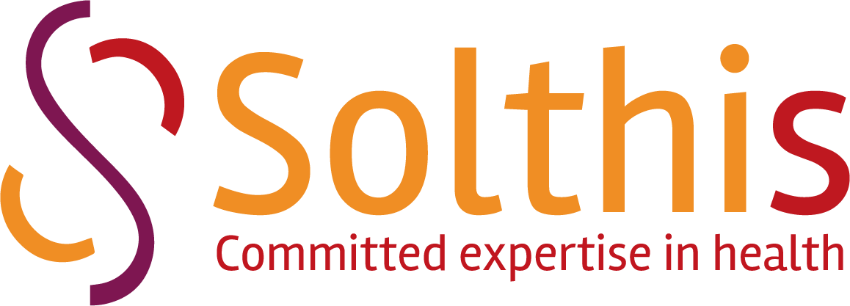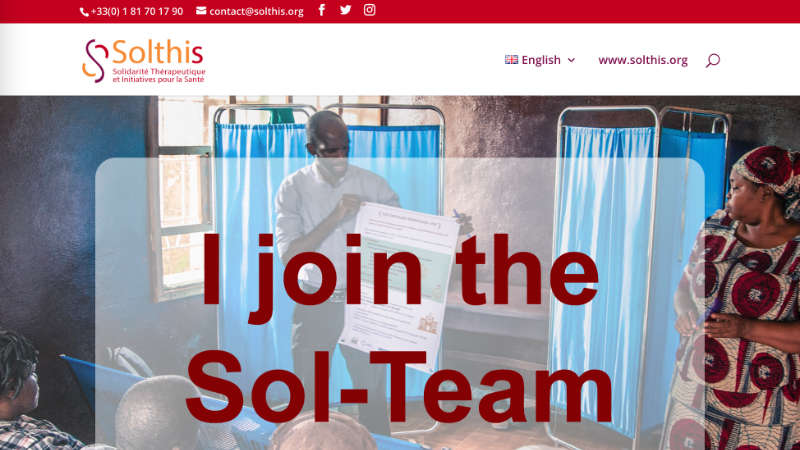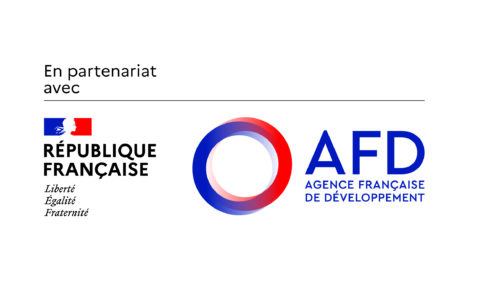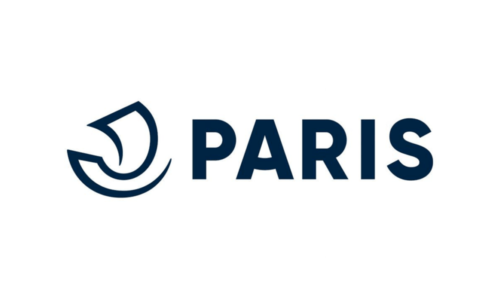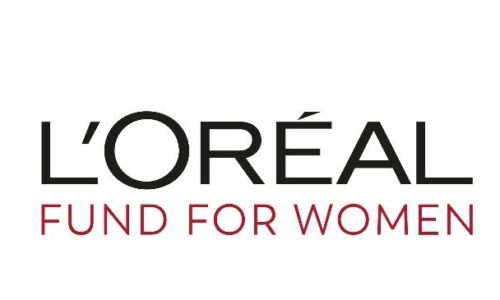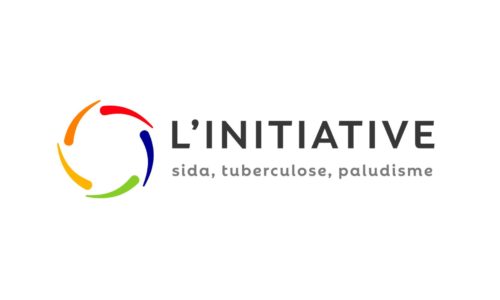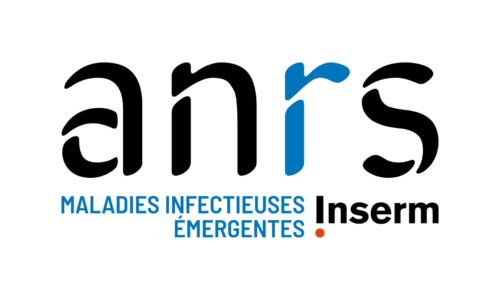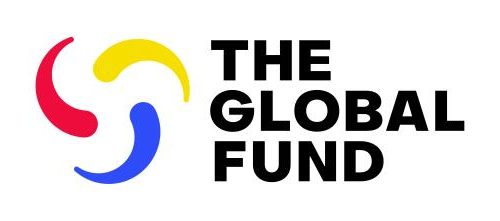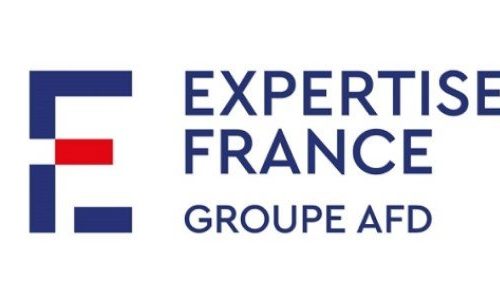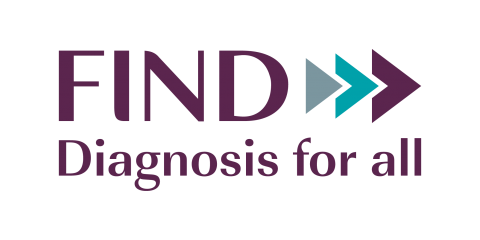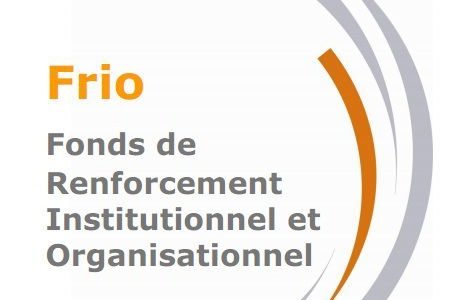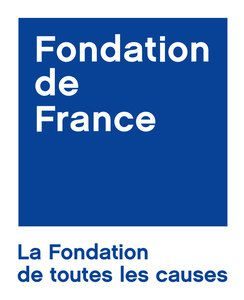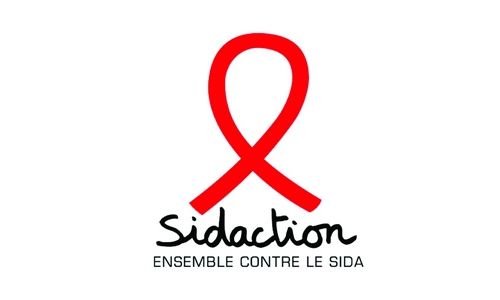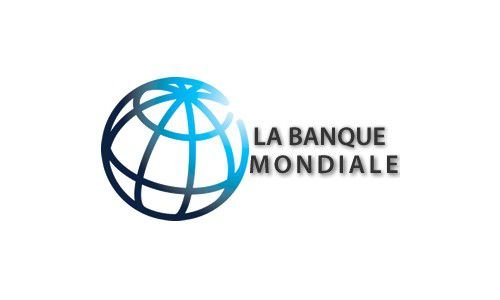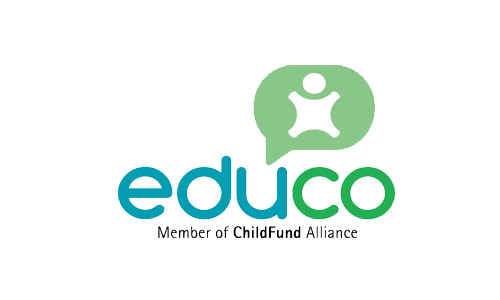After several months of fighting the pandemic, a review of the actions carried out by Solthis teams
1 July 2020
The 300,000 cases of infection have been exceeded in Africa (source WHO June 21 2020). On May 11, UNAIDS estimated that 500,000 additional deaths caused by HIV could occur in Africa in 1 year (double the deaths recorded in 2019) if access to antiretroviral treatment was disrupted for 6 months by the COVID-19 pandemic.
1. Raising awareness about COVID-19 and providing accurate information to stop the community contamination chain
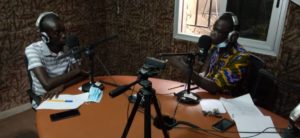 Misinformation is a major issue in the fight against COVID-19. To limit the spread of the pandemic to communities, a better understanding of the virus and prevention measures is needed.
Misinformation is a major issue in the fight against COVID-19. To limit the spread of the pandemic to communities, a better understanding of the virus and prevention measures is needed.
- Radio broadcasts, awareness-raising
As part of the ATLAS project, funded by Unitaid, Solthis and its national and community partners are participating in the response by developing and/or promoting awareness-raising tools adapted for vulnerable populations and those living with HIV.
In Mali, in order to target populations far from mass broadcasting channels, Solthis supports the broadcasting of awareness spots on community radio stations in French and Bambara on barrier gestures. In Senegal, Solthis finances and supports the development of weekly programmes, broadcast on community radio stations in Mbour, Dakar and Ziguinchor, which reaffirm the importance of barrier gestures and address specific themes in the company of an expert who presents the subject and answers listeners’ questions. In Côte d’Ivoire, Mali and Senegal, posters developed with UNAIDS are reproduced and displayed in health centres and sites supported by Solthis to inform PLWHIV of the specific behaviours to be taken in the face of COVID-19 in view of their HIV-positive status.
- Co-constructing awareness with civil society on the importance of continuing medical care
In Guinea, Solthis teams work with community associations active in health promotion. An inter-associative collective was supported in the construction of a campaign on the “Right to continuity of care in COVID context for patients suffering from chronic diseases”, in the framework of the RUCHE project, funded by AFD.
2. Limiting the spread of the virus to health professionals
- Equipment, Training, Hygiene in Health Centres
Since April 1st in Sierra Leone, awareness-raising training on the basics of COVID-19, on hygiene and infection prevention and control measures and on psychosocial support, as well as the distribution of protection equipment have been carried out in the 20 structures supported by Solthis, thanks to the Empower 2 project funded by AFD and the Paris City Council.
In Guinea, within the framework of the RUCHE project funded by AFD, a distribution of medical equipment for protection, hygiene and prevention took place in 4 HIV care sites supported by the project.
In Côte d’Ivoire, Mali and Senegal, the ATLAS project is investing, with the financial support of Unitaid, 230,000 euros in protective equipment over the next few months. This equipment will be made available to our implementing partners who are continuing their activities in the field, in particular the dispensing of HIV self-testing kits.
- Support for patient triage at Niamey Hospital
In Niamey, 1 person out of 5 suffering from COVID-19 is a health worker, i.e. 18% of confirmed cases in the region (source MSP-WHO/Niger). The implementation of hygiene measures (hand washing, hygiene kits) and the provision of protective equipment (gowns, glasses, gloves, etc.) has therefore been one of the priorities for the Niamey Regional Hospital Centre (CHRN), which has large maternity and paediatric services.
Within the framework of the support to the CHRN, with the AIRE project funded by Unitaid, coordinated by Alima and implemented by Solthis in Niger, our teams will notably accompany for 4 months the reorganization of the circuits of the Hospital Center with the implementation of an efficient patient triage system, isolation, symptomatic treatment of suspect cases, support for the confirmation of the diagnosis and referral to the COVID-19 + management sites.
3. Enable continuity of access to essential care services in health centres and at home (e.g. remote monitoring, access to treatment and screening).
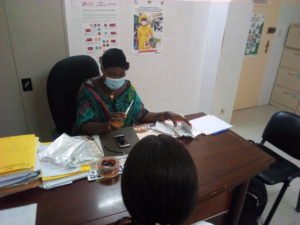
- Adaptation of HIV services to ensure continuity of care for patients
In Sierra Leone, this adaptation was illustrated by clinical mentoring as well as the continuation of ARV provision at 3 months, with remote monitoring through the payment of phone refills and fuel for the health workers’ vehicles. Solthis also provided vehicles and drivers to bring ARVs directly to the communities as many patients were afraid to go to the health facilities.
- Access to HIV self-testing
Maintaining access to HIV self-testing is critical because it provides access to knowledge of one’s HIV status by limiting contact. The ATLAS project has supported its partners working in the field to develop strategies adapted to the context and thus make it possible to maintain activities. In Mali, on the free information line on COVID-19, hosted by PSI Mali’s KENEYAKO line, two additional listeners were recruited to answer questions on both COVID-19 and the ATLAS HIV self-testing kits. In Dakar, Senegal, an advanced screening strategy was implemented by the teams of the Ambulatory Treatment Centre of the Fann University Hospital. Finally, the field teams of the implementing partners involved in the ATLAS Project in Côte d’Ivoire, Mali and Senegal adapted their activities, thus respecting the barrier gestures for their awareness sessions.
LEARN MORE
- Our video stories
-
- COVID-19 : pourquoi la continuité des soins essentiels est-elle une priorité ? Dr Guillaume BRETON, Scientific Director of Solthis
- COVID-19 : Limiter la chaîne de transmission communautaire – Harouna MAMANE, project manager Solthis in Guinea
- COVID-19 : Limiter la propagation du virus au Niger – Dr Roubanatou ABDOULAYE-MAMADOU Head of Mission in Niger
- More information on the ATLAS HIV self-test project and the COVID response
- Find 3 times a week our selection of press articles on COVID in Africa.
- Our Q&R COVID-19
